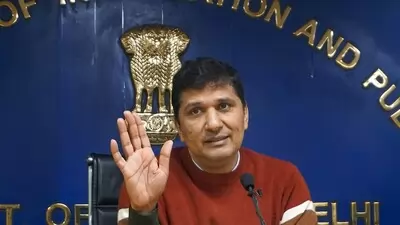The Central Bureau of Investigation (CBI) has been instructed by the Ministry of Home Affairs (MHA) to look into the possible distribution of inferior medications in government hospitals in Delhi. The Delhi government’s pertinent medical supply chain documents are anticipated to be reviewed by the federal agency. The probe will also look into whether these inferior medications were distributed via Mohalla clinics, which are essential to the Aam Aadmi Party’s healthcare program in the nation’s capital.
The federal agency is acting on Lieutenant Governor VK Saxena’s recommendation to launch a CBI investigation into the Delhi government’s supply of medications. The drugs were acquired by the Central Procurement Agency (CPA) under the Delhi government’s health department after it was determined that they were dangerous and did not meet quality standards. Examining all pertinent records pertaining to the pharmaceutical supply chain is the goal of the investigation, which also seeks to determine whether the subpar medications supplied to different government hospitals pose any risks.
Saurabh Bharadwaj, the health minister of Delhi, has praised the investigation into the medication supply. He clarified that the drugs under examination were not spurious or fake, but rather were categorized as “not of standard quality” (NSQ). Bharadwaj emphasized that since September of the prior year, he had voiced concerns regarding these irregularities.
On July 25, the drug controller gathered samples from prestigious hospitals including Deen Dayal Upadhyay, Lok Nayak, and the Institute of Human Behaviour and Allied Sciences. Numerous patients are served by these hospitals. Allegations that medications commonly used in government hospitals were not working led to the decision to look into the matter. After collection, the samples were sent to government-approved and private laboratories for in-depth analysis.
The Directorate of Vigilance (DoV) found that more than 10% of the tested samples were “not of standard quality” (NSQ), according to reports. The directorate expressed concern and suggested looking into whether patients were receiving the same medications that the Central Procurement Agency (CPA) had purchased through the “Mohalla Clinics.” It recommends enlisting the help of a central agency in the investigation to guarantee a thorough analysis of the situation.
Saurabh Bharadwaj, the health minister of Delhi, clarified that although the drugs in question did not meet standards, they were not counterfeit in response to the Ministry of Home Affairs (MHA) requesting a CBI investigation. He highlighted the term “NSQ” (not of standard quality) and made it clear that the drug is not automatically considered to be counterfeit. According to Bharadwaj, a medication cannot be deemed phony if it successfully treats the intended health problem; on the other hand, if a local business manufactures a replica of a particular medication, it is referred to as spurious.
According to Saurabh Bharadwaj, the health minister of Delhi, the term “not of standard quality” (NSQ) supports the claim that the medications are not fake. He explained that declaring a medication to be phony depends on whether the manufacturer is using dishonest business methods or if the medication doesn’t work for the stated ailment. Rather than the medication’s authenticity, the focus is on its quality and effectiveness.
Aam Aadmi Party (AAP) healthcare system is being tarnished by false cases and allegations, according to Delhi Minister Atishi, who made this accusation in a separate development. Concerns were raised earlier in December by Delhi Health Minister Saurabh Bharadwaj, who stated that the Directorate General of Health Services, which is headed by Health Secretary SB Deepak Kumar, issues prescription drugs for government hospitals in Delhi. Citing the health secretary’s disobedience to orders and lack of accountability to the elected government and ministers, Bharadwaj demanded the health secretary’s immediate suspension.








